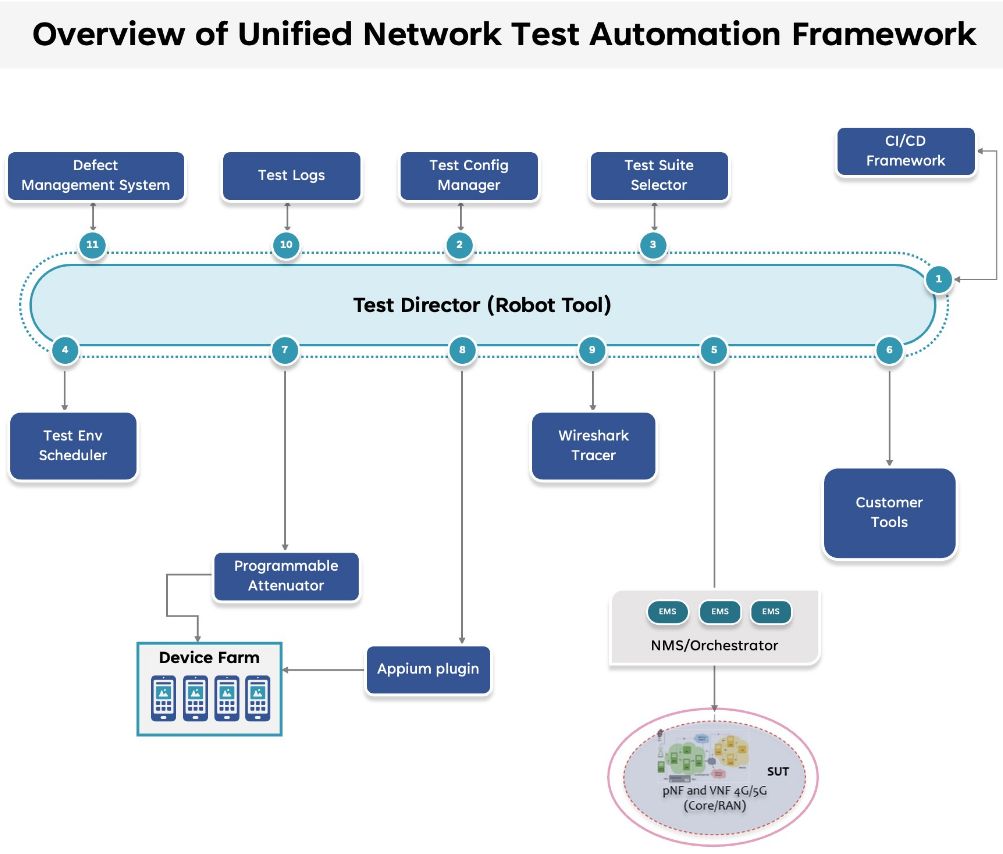As telecom networks move from 4G to cloud-native 5G, OEM vendors are transforming their products and solutions from legacy to Virtualized Network Functions (VNF). Network products are becoming cloud-native, and agile delivery processes are rising. In this context, telco operators are being challenged to achieve quicker time-to-market for their products.
One key aspect of accelerating time-to-market will be speeding up the lab certification of products/solutions before the general launch. Telcos must integrate, deploy, and test the network VNF/CNF seamlessly with minimal manual intervention. To do this, they must also integrate CI/CD/CT tool systems in test labs and achieve zero-touch automation.
If telcos can automate the entire test cycle, they will gain significant advantages over their slower competitors.
The Need for Automated Testing
The telco operator network is an integration of multiple OEM vendor products, some providing Physical Network Functions (PNF) and others VNF. Telco customers have multiple product certification test tools and automation frameworks from OEM vendors or tool partners. In the current telco test lab environment, various automation frameworks support specific vendor products and network functions. This dynamic necessitates multiple regression test cycles, which consume significant time and effort.
For telco operators, the immediate need is to implement a unified network test automation methodology/framework. This will not only enable zero-touch automation but also significantly reduce the lab certification cycle times, thereby enhancing operational efficiency and accelerating time-to-market.



